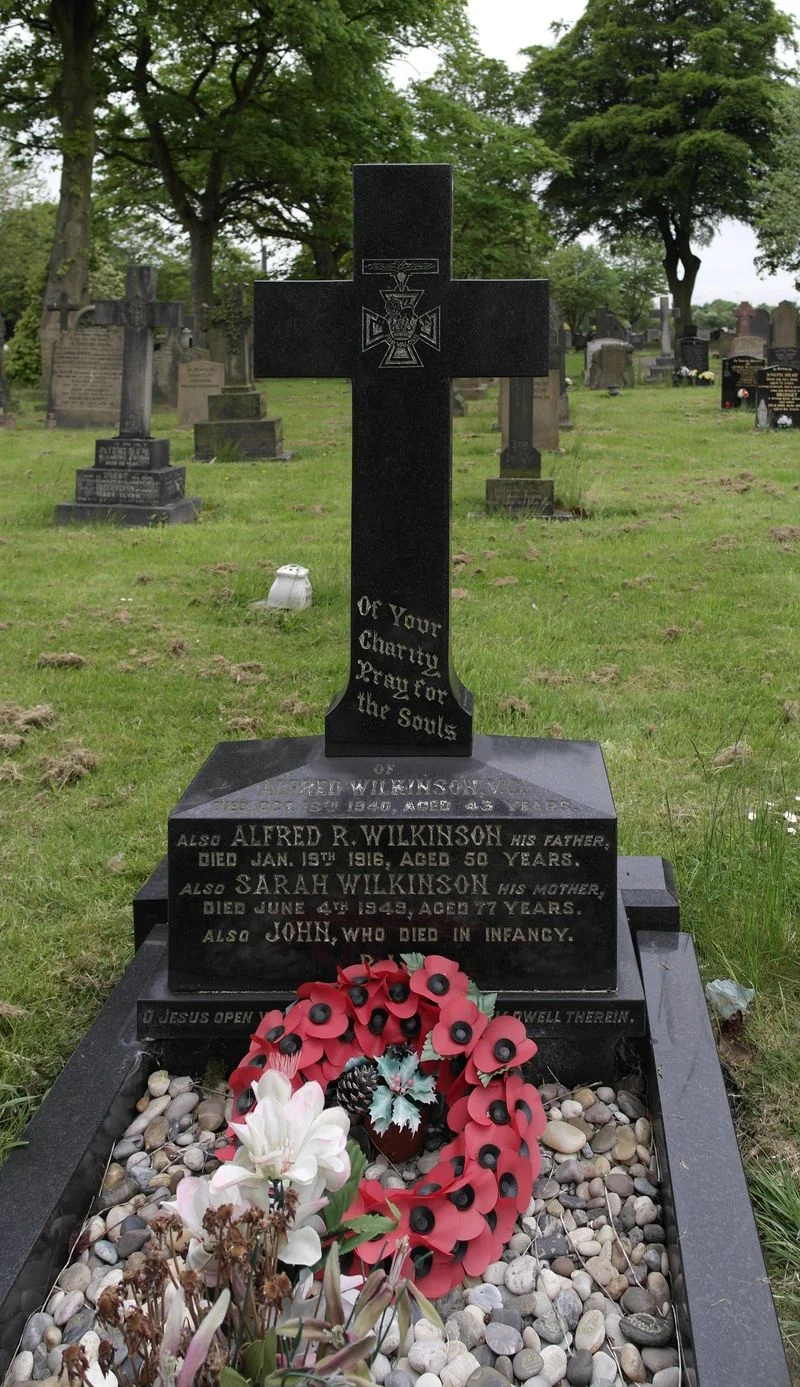Alfred Wilkinson V.C. (the Victoria Cross is the highest honour that this country can bestow on its servicemen), who came unscathed through World War I, only to die a tragic death at the age of 43 years. Thanks to Leigh Local History
LANCE-CORPORAL Alfred Wilkinson V.C. was born in Leigh, Lancashire. He enlisted in the 1/5th Manchester Regiment on 12 December 1914, and went out to France in July 1916. It is remarkable that although he took part in a vast number of engagements for two and a half years he escaped without a single scratch. He first went over the top at Fleurs, near Bapaume, in the autumn of 1916 and when the great Battle of the Somme commenced, he went though all the Somme campaign. Then he went to Arras,
and took part in the numerous engagements when the Germans were fighting rearguard actions. Later he went to Ypres, now a heap of ruins, and took part in the third battle of Ypres. Just after the Messines ridge had been blown up, his regiment went there, but soon returned to Ypres, and then took part in the second series of the Somme battles. His Division, the 42nd, were billeted near Peronne, and were resting a few miles from the firing line when the German offensive started on 21 March 1918.
Alfred performed his heroic act, which led to his being awarded the Victoria Cross, when his Division were fighting at Marou, near Solesmes on 20 October 1918.
OBITUARY:
Tragic Death of Leigh V.C., 23 October 1940
Mr. Alfred Wilkinson, Leigh only V.C., died under tragic circumstances on Friday. Employed in the surveyors laboratory at Bickershaw Collieries, Plank Lane, he was found dead in a chair at noon. Mr. Wilkinson was testing the samples of air taken from different areas of the mine to determine the amount of gas present in order to monitor the amount of ventilation required in any part of the mine. According to a colleague, Mr. Wilkinson felt unwell, and sat in a chair; it was sometime later that his colleague returned (he had been underground) and found him in the chair as though asleep. All attempts to resuscitate him were made, and Mr. Wilkinson was confirmed dead on the way to hospital. The post mortem revealed that he had died from carbon monoxide poisoning and a subsequent investigation found that a ventilation pipe had been blocked by a dead bird. He was just 43 years old. On the morning of his death he received a letter informing him that he had been granted a commission in the Pioneer Corps. He left a widow and child. Flags in the town were flown at half-mast and he was buried in Leigh cemetery with full military honours.











